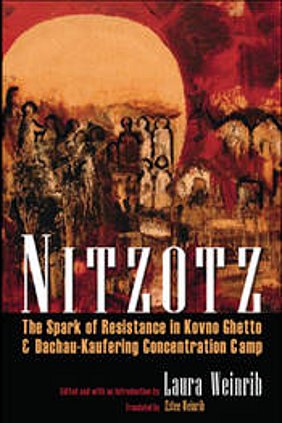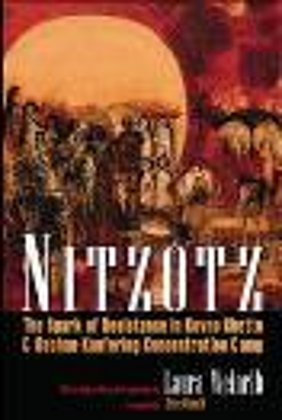Ethics in the Shadow of the Holocaust:
Christian and Jewish Perspectives
Edited and with an introduction by Judith H. Banki and John T. Pawlikowski, O.S.M.
Sheed and Ward, Chicago, 2002. 364 pp., $24.95
From the Introduction
 This
volume brings together the papers from two remarkable conferences held at Catholic
Theological Union in Chicago during 1999. The first, in March of that year, assembled more
than thirty Catholic and Jewish scholars and interfaith leaders for an in-depth discussion
of the Vatican document We Remember: A Reflection on the
"Shoah," issued by the Holy See"s Commission for Religious Relations with
the Jews in March 1998. Cardinal Edward Idris Cassidy, the President of the Holy See"s
Commission and principal architect of the document, was present for the entire consultation,
offering initial perspectives as well as concluding observations. The consultation was
co-sponsored by the Tanenbaum Center for Interreligious Understanding in New York and
Catholic Theological Union"s Joseph Cardinal Bernardin Center for Theology and Ministry. This
volume brings together the papers from two remarkable conferences held at Catholic
Theological Union in Chicago during 1999. The first, in March of that year, assembled more
than thirty Catholic and Jewish scholars and interfaith leaders for an in-depth discussion
of the Vatican document We Remember: A Reflection on the
"Shoah," issued by the Holy See"s Commission for Religious Relations with
the Jews in March 1998. Cardinal Edward Idris Cassidy, the President of the Holy See"s
Commission and principal architect of the document, was present for the entire consultation,
offering initial perspectives as well as concluding observations. The consultation was
co-sponsored by the Tanenbaum Center for Interreligious Understanding in New York and
Catholic Theological Union"s Joseph Cardinal Bernardin Center for Theology and Ministry.
The consultation focused on four areas that had elicited considerable critical discussion
in the year since the appearance of the Vatican document. These were: 1) anti-Semitism and
the Christian tradition; 2) We Remember"s understanding of the Church in light of
Vatican II; 3) the relationship between classical Christian anti-Semitism and Nazi ideology;
and 4) the role of Pius XII during World War II. Cardinal Cassidy delivered a public lecture
during the consultation, reflecting on the intent of the Vatican document and its reception.
The remainder of the two-and-a-half-day consultation consisted of intensive discussion of
papers on the above issues by one Christian and one Jewish scholar in each session. Cardinal
Cassidy and Peter Steinfels, of Georgetown University and the New York Times,
respectively, concluded the consultation with summaries of the principal points raised in
the discussion.
The second set of papers comes from the annual conference of the Catholic-Jewish Studies
program of the Bernardin Center. Held in May 1999, in partnership with the Church Relations
Committee of the United States Holocaust Memorial Museum, the conference examined
contemporary ethical issues in light of the Holocaust experience. Overviews of the moral
challenge of the Holocaust for contemporary humanity were presented by Rabbi Michael
Berenbaum, who played a central role in the development of the museum in Washington; and
John T. Pawlikowski, of the CTU faculty, who has served on the United States Holocaust
Memorial Council by presidential appointment since the council"s creation by the United
States Congress in 1980. Subsequent papers focused on economic ethics and medical ethics.
Table of Contents
PART ONE
CONSULTATION ON WE REMEMBER
Chapter 1
The Vatican Document on the Holocaust: Reflections toward a New Millennium
CARDINAL EDWARD IDRIS CASSIDY
Chapter 2
Christian Tradition, Anti-Judaism, and Anti-Semitism
GERARD S. SLOYAN
Chapter 3
The Jewish-Christian Schism: Reflections on the Vatican Document We Remember
CLAUDIA J. SETZER
Chapter 4
The Church as Sacrament and as Institution: Responsibility and Apology in Ecclesial
Documents
ROBERT J. SCHREITER
Chapter 5
The Church as Sacrament and as Institution: Jewish Reflections
RABBI IRVING GREENBERG
Chapter 6
Jewish Citizenship in Emerging Nation States: Christian Anti-Semitism, Nationalism, and
Nazi Ideology
RONALD MODRAS
Chapter 7
Some Reflections on Nationalism, Romanticism, Anti-Semitism, and the Holocaust
STEVEN T. KATZ
Chapter 8
We Remember: The Vatican and the Holocaust in Historical Context
MICHAEL R. MARRUS
Chapter 9
Pope Pius XII in Historical Context
JOHN F. MORLEY
Closing Remarks
CARDINAL EDWARD IDRIS CASSIDY
Summary and Feedback
PETER STEINFELS
Appendix A
The Vatican and the Final Solution: What was Known, and When
KEVIN MADIGAN
Appendix B
Vatican II Revisited
JUDITH H. BANKI
Appendix C
The Vatican and the Holocaust: Putting We Remember in Context
JOHN T. PAWLIKOWSKI
PART TWO
CONFERENCE ON ETHICS AND THE HOLOCAUST
Chapter 10
The Impact of the Holocaust on Contemporary Ethics
MICHAEL BERENBAUM
Chapter 11
The Holocaust: Its Challenges for Understanding Human Responsibility
JOHN T. PAWLIKOWSKI
Chapter 12
The Ethics of Nazi Human Experimentation: Contemporary Concerns
JOHN J. MICHALCZYK
Chapter 13
Medical Ethics in Light of the Holocaust: A Response
PETER J. HAAS
Chapter 14
Conscience, Knowledge, and "Secondary Ethics":
German Corporate Executives from "Aryanization" to the Holocaust
PETER HAYES
Chapter 15
Conscience, Knowledge, and "Secondary Ethics ": A Response to Peter Hayes
DONALD J. DIETRICH
CONTRIBUTORS
JUDITH H. BANKI is program director for the Tanenbaum Center for Interreligious
Understanding in New York. She has been deeply involved in Christian-Jewish relations for
many years, and is co-editing a new collection of the writings of Rabbi Marc Tanenbaum. She
recently was awarded an honorary doctorate by Seton Hall University for her work in
promoting Jewish-Christian understanding.
MICHAEL BERENBAUM has taught at Georgetown University, at the United States Holocaust
Memorial Museum (where he was deeply involved with the creation of its permanent exhibition
and its research unit), and at the Survivors of the Shoah Foundation. He has authored and
contributed to many books on the Holocaust, including The World Must Know, the
official guide to the Holocaust Museum in Washington, D.C.
CARDINAL EDWARD IDRIS CASSIDY, a native of Australia, served in the Vatican diplomatic
corps for many years. Most recently he served as President of the Holy See"s Commission for
Religious Relations with the Jews, where he was instrumental in building constructive
Catholic-Jewish relations throughout the world. He is the principal author of the Vatican
statement on the Holocaust, We Remember.
DONALD J. DIETRICH teaches in the theology department at Boston College, where he has
also served as chair of the department. He has written on numerous aspects on the history of
the Holocaust and also explored its social ramifications in his book God and Humanity in
Auschwitz.
RABBI IRVING GREENBERG, a noted writer on the Holocaust, has taught at the City
University of New York, and worked with several national Jewish organizations including the
Jewish Life Network. He has been closely associated with the United States Holocaust
Memorial Museum, and presently chairs the museum"s national council.
PETER HAAS has had a long interest in the ethical dimensions of the Holocaust,
particularly its implications for medical ethics. He has taught at Vanderbilt University and
currently is a faculty member in Jewish studies at Case Western Reserve University.
PETER HAYES has been one of the leading historians in studies on the Holocaust. He has
undertaken detailed research on the role played by German corporate executives in the
development of Nazism. He has been a resident fellow at the United States Holocaust Memorial
Museum and currently is a member of the history department at Northwestern University.
STEVEN T. KATZ teaches in the Center for Judaic Studies at Boston University, and is
currently at work on a three-volume study of the Holocaust. The first volume of this study
has been published under the title The Holocaust in Historical Context. He currently
chairs the Academic Committee at the United States Holocaust Memorial Museum.
KEVIN MADIGAN has taught church history at the Catholic Theological Union in Chicago, and
now teaches at Harvard Divinity School. At both institutions he has offered courses on the
Holocaust with a special interest in the role of the Christian churches during the Nazi era.
MICHAEL R. MARRUS, a distinguished scholar on the Holocaust, serves as Dean of Humanities
at the University of Toronto. He has published widely on the Holocaust, including The
Holocaust in History. He recently served as part of the joint Jewish-Catholic team of
scholars that examined the Nazi-era archival materials released by the Vatican.
JOHN J. MICHALCZYK teaches in the fine arts department at Boston College. He has had a
long-standing interest in the implications of Nazism for medical ethics. He has written and
produced a video on this topic as well as the volume Medicine, Ethics, and the Third
Reich.
RONALD MODRAS is a member of the theology faculty at St. Louis University. He has had a
special interest in antisemitism, especially in Poland. His work on the topic is The
Catholic Church and Anti-Semitism: Poland, 1933-1939.
JOHN F. MORLEY teaches at Seton Hall University and is an acknowledged specialist on the
Vatican and Pope Pius XII during the Holocaust. His work on the subject is Vatican
Diplomacy and the Holocaust. He is a priest of the Archdiocese of Newark and recently
served on the joint Catholic-Jewish scholarly commission investigating the Vatican archives.
JOHN T. PAWLIKOWSKI is a Servite Priest and professor of Social Ethics at the Catholic
Theological Union, where he also directs the Catholic-Jewish Studies program in CTU"s
Cardinal Bernardin Center. He has written extensively on the Holocaust and on
Christian-Jewish relations, including Jesus and the Theology of Israel. He has served
on the United States Holocaust Memorial Council by presidential appointment since 1980.
ROBERT SCHREITER, a priest of the Congregation of the Precious Blood, is Vatican II
Professor of Theology at Catholic Theological Union. He has written widely on the subject of
reconciliation. His major work in the field is The Ministry of Reconciliation:
Spiritualities and Strategies. He recently completed a term as president of the Catholic
Theological Society of America.
CLAUDIA SETZER teaches biblical studies at Manhattan College in New York City. She has a
special interest in the relationship between Jews and Christians in the early centuries of
the common era.
GERARD S. SLOYAN, a Catholic priest, is a noted expert in the fields of biblical studies
and ecumenism. He taught for many years at Temple University and currently is an adjunct
professor at the Catholic University of America. He has written extensively on
Christian-Jewish relations and has served as president of the Catholic Theological Society
of America.
PETER STEINFELS teaches at Georgetown University and contributes regular columns on
religion to the New York Times, where he served as religion editor for several years.
He is also a regular correspondent for the PBS program Religion & Ethics Weekly. | 



